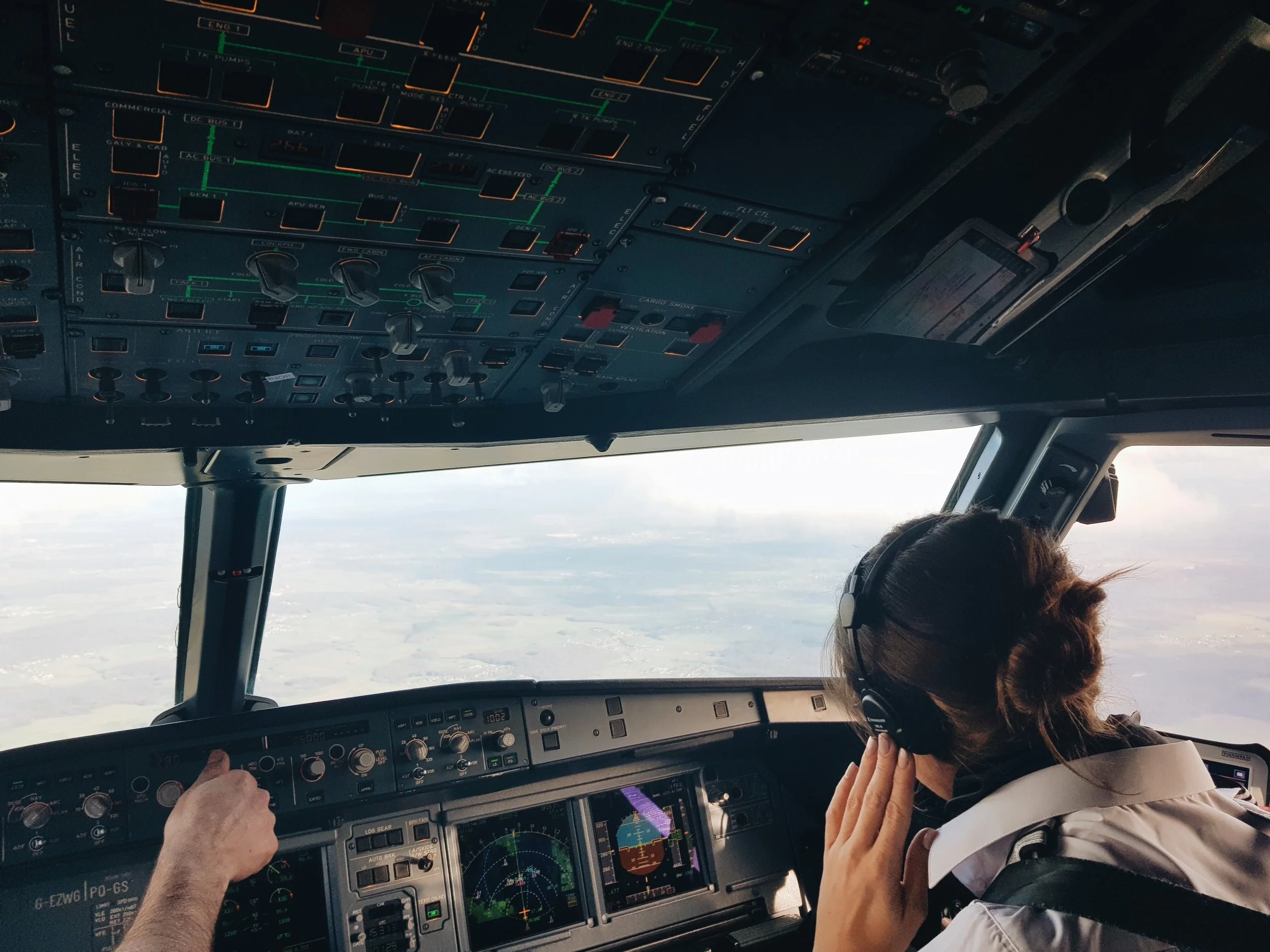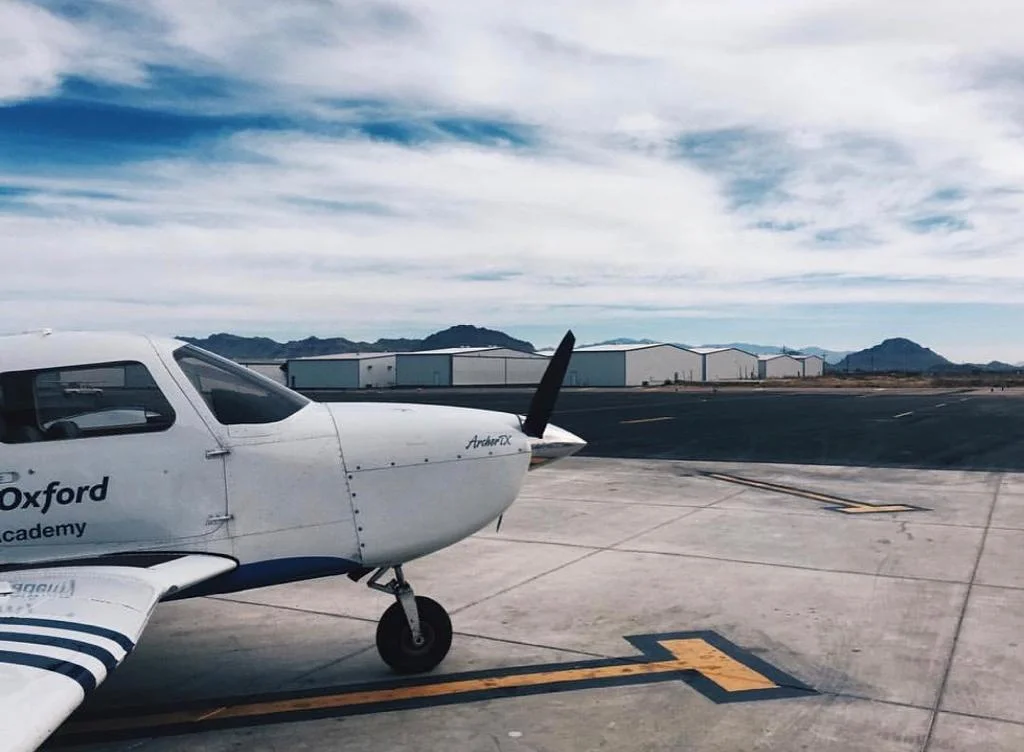How I Became a Pilot
This is the question I am most frequently asked, how to become a pilot. So here is my story, from near to no flying hours to flying for one of Europes biggest airlines.
Realising the Dream
Cliche as it might sound, this is always what I've wanted to do. I have been fascinated with flying ever since I first flew with my father in a Robin he had a share in. He handed me the controls as were were cruising along, little did I know I was doing absolutely no flying, but as I tentatively wrapped my small hands around the yoke, staring out of the window to the cliffs below, ever since I have wanted to fly.
Applying and Funding
Throughout my school years, I always loved maths and science, which put me in good stead to achieving my goal. I studied hard at school, a bit of a nerd, but as all nerds will tell you, it pays off to be a nerd. After GCSE's I went on to study maths, physics, geography and art A Levels. I was accepted to study Physics at Imperial University London, but turned it down when I was accepted to Oxford Aviation Academy at 18.
This is where the journey really began. Unfortunately, due to my funding falling through, I found myself unable to start the course a month before. I was, to say the least, devastated. At this time there were no sponsorship schemes no airlines offering subsidised training so I had to make a new plan.
At the time I was working as a wakeboard instructor on the Isle of Wight when I was presented with a job opportunity to travel to the Ukraine to be a coach for the Junior Olympic Ski team. I snapped it up. Having turned down my university places, this was exactly what I could have hoped for, travel the world and do what I loved. I spent 4 months living in Obolon, a district in Kiev, waking up, walking to the cable park and teaching children aged 8-16 to wakeboard, in Russian.
I returned to the UK, carried on teaching and competing which enabled me to travel the world for the next year. In the meantime I had reapplied to university to study Aerospace Engineering. When I opened the email to see I had been accepted, sat in the lobby of a hostel in Sydney, I was elated.
After my degree, I moved to London for work, trying to save for my pilot training. I applied to the British Airways Future Pilot Scheme, and made it to the final stage but didn't get the sponsorship.
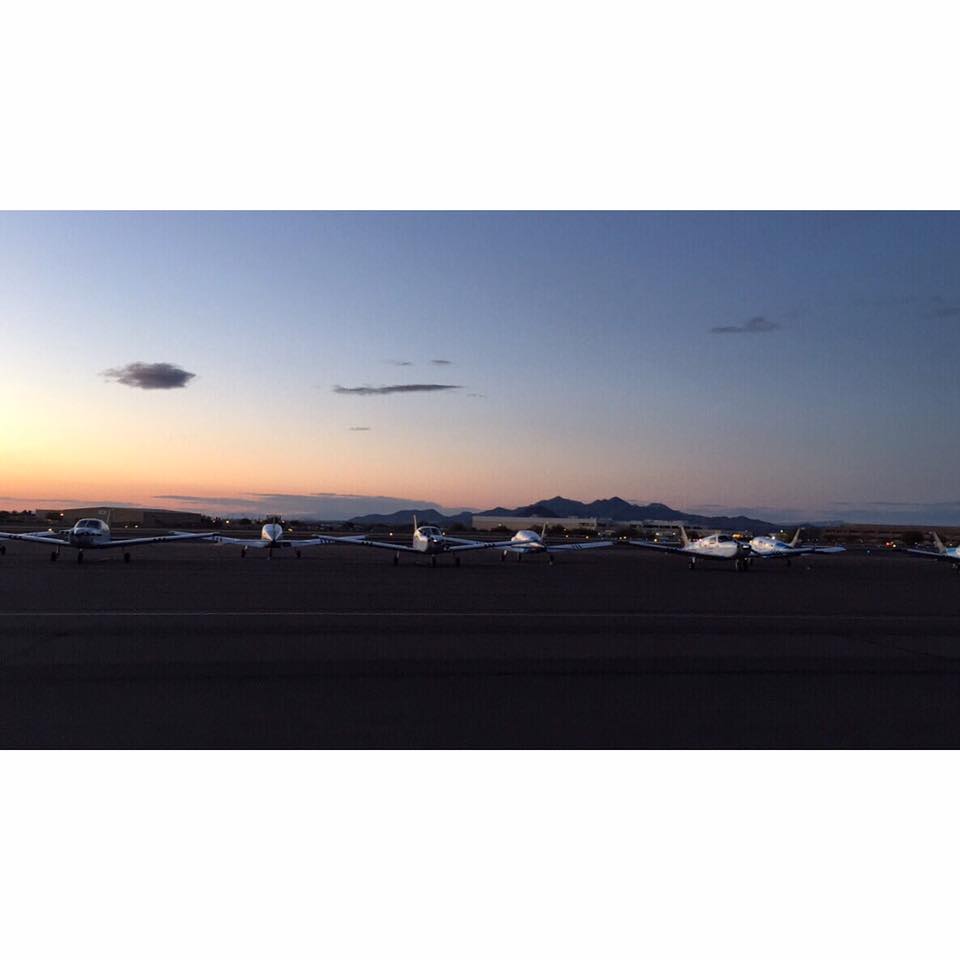
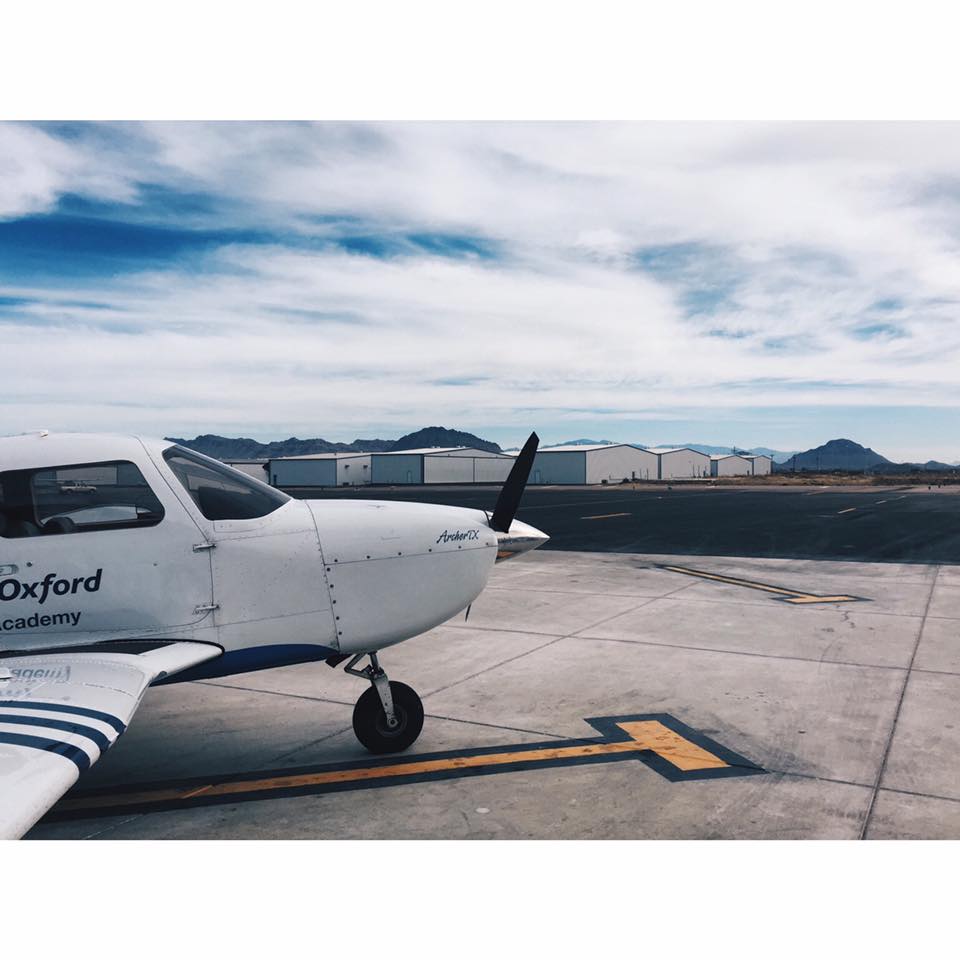
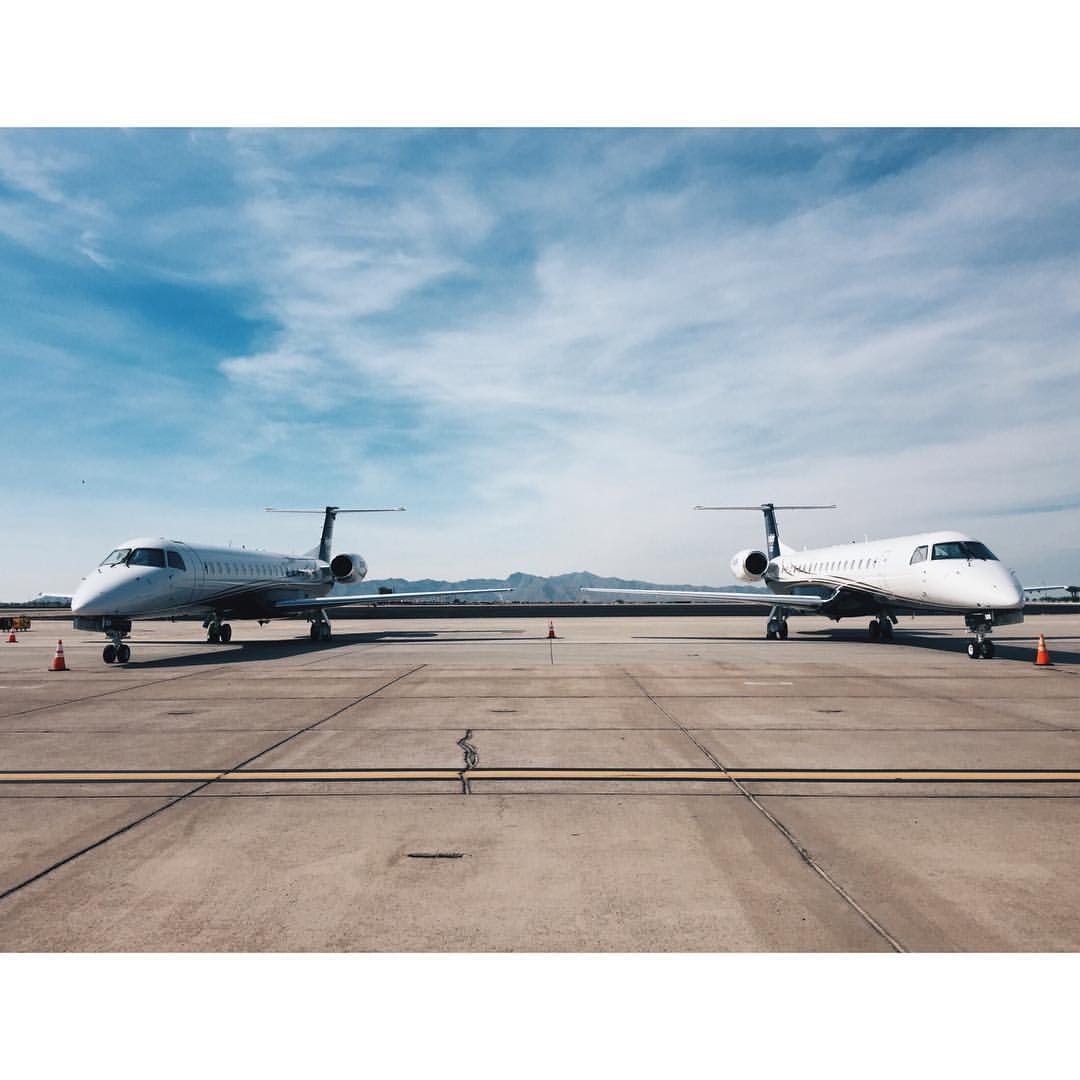
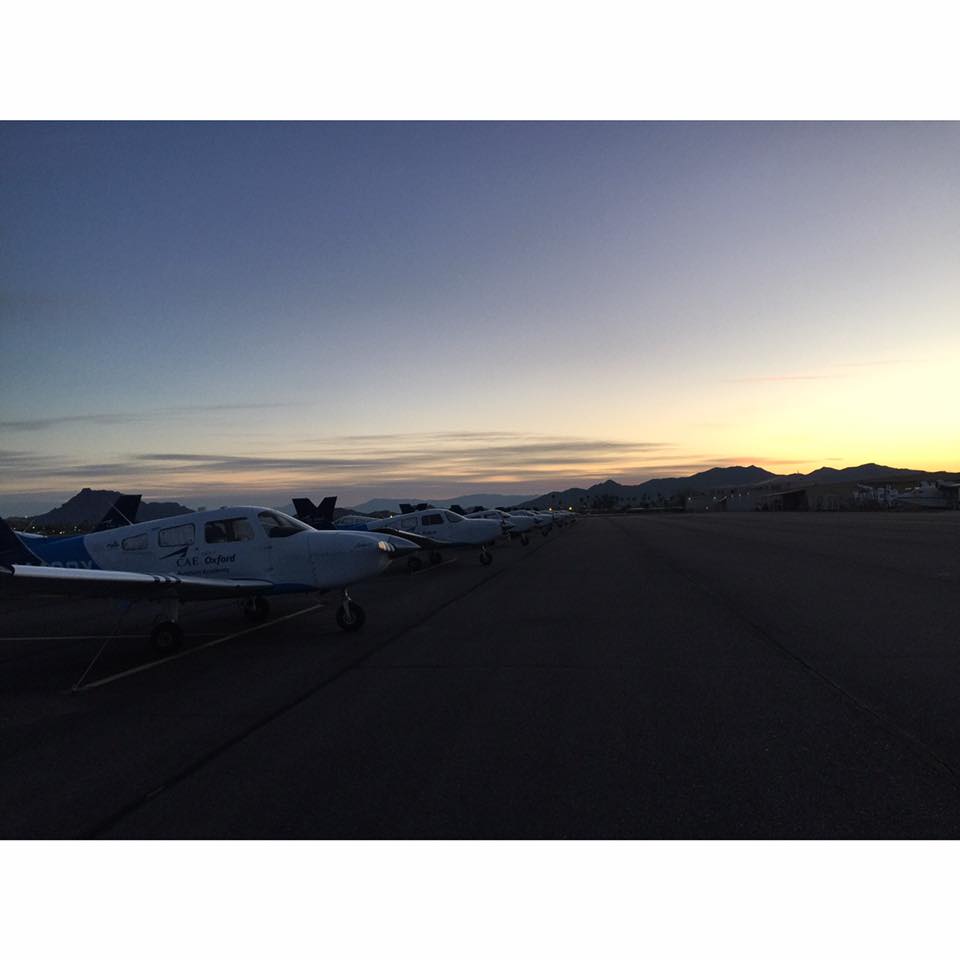
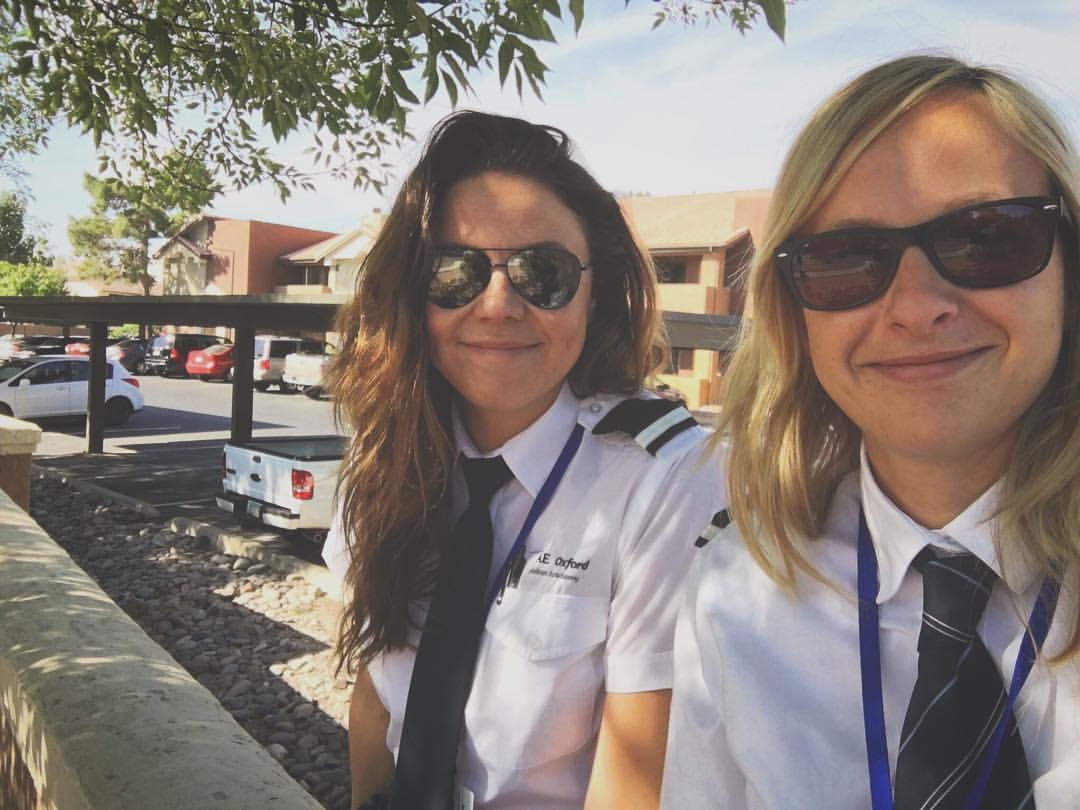
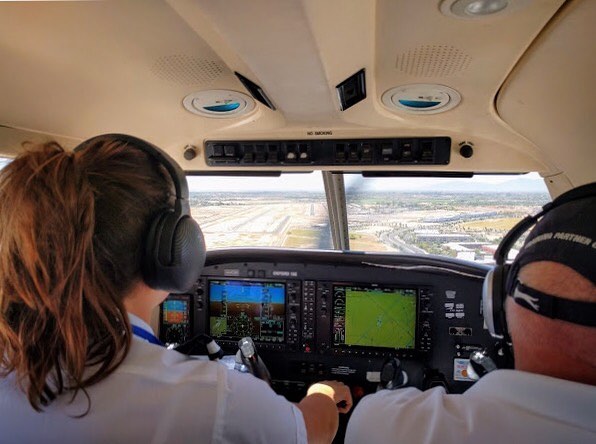
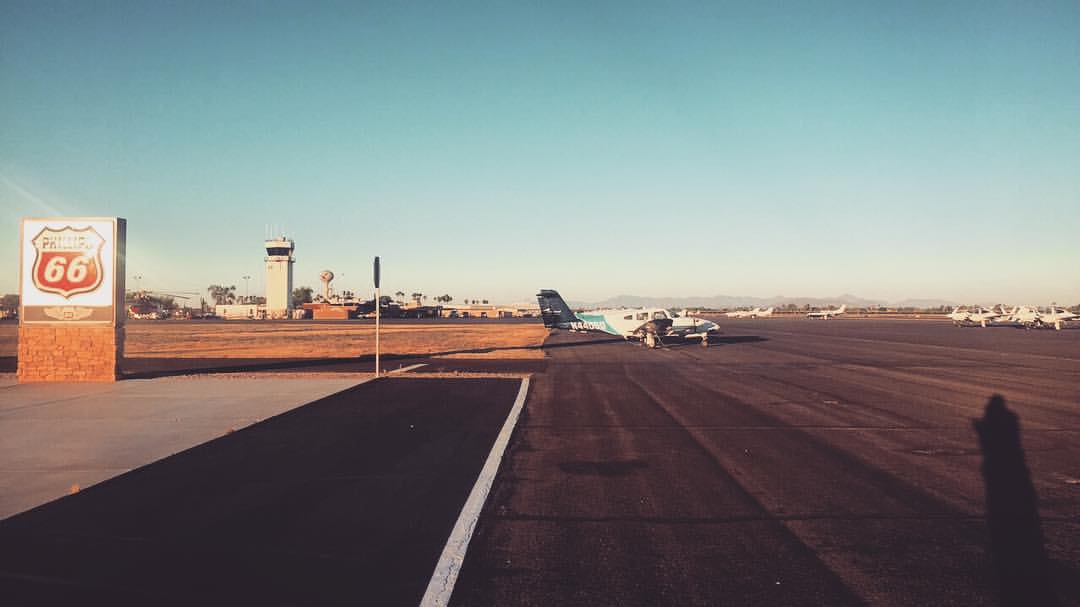
I was at a stage where my career in PR was going really well but my hopes of being able to afford pilot training were fading. One morning on the phone to my parents they asked if I still wanted to be a pilot. I replied "of course" and they then said that they could lend me the money due to a change in their financial circumstances.
I know I am extremely privileged to have had this opportunity and that many people out there dreaming of a career in aviation don't. But fear not, there are other routes that you can take other than the self sponsored ATPL. Take a look at the easyJet MPL scheme through L3 Airline Academy and CAE Oxford Aviation Academy, which will save you about £40k. There is also the option of the modular route, take a look at Bristol Ground School . You can read more about other training routes in my blog post here.
I phoned CAE Oxford immediately, went and did the assessment for the integrated ATPL on the Monday, passed and started on the Friday. The dream was in motion.
Ground School
Anyone thats been through this recently will tell you, this is 6 months of hell. 42 exams in 6 months. 14 subjects, thousands of practice questions and a 75% pass mark. Here is my advice for anyone starting out:
Be disciplined - I would make sure that I studied for 10 hours, everyday. On school days, that meant about 3 hours when you got home. Weekends, what weekends.
Never get behind - You don't revisit topics, so at the end of each day I would make sure that I had completed all the reading and questions for that day, or if that was not possible by the end of the week.
Make a timetable - Prioritise your subjects. You'll find some easier that others, so it's not worth sitting there doing stuff on engines for three hours because you like getting the questions right, when really you need to work on Radio Nav because you suck at it.
Don't end the week not understanding something - some days you will be sitting there thinking... wtf I don't get this. Do not go home and avoid it for the next 3 months until the exam. Go and see the instructor, they love to help and will probably make you understand it in 30 minutes instead of the 3 hours you spend trawling through 15 chapters. I would make a note of things during every lesson that I didn't understand, and carry this on for the week. I would never go from one week to the next without addressing them.
Don't let anything come between you and your dream - you've passed the assessment, you deserve to be here. Don't listen to the loud voice in your head telling you can't do it, listen to the quiet one telling you you can.
Set time aside to do what you enjoy and what makes you more productive - By making a timetable for your studying and sticking to it, you can schedule in time to do what you enjoy. Whether it is going to the pub, gym or seeing your other half, stick to the study plan and you'll have time to chill too.
Don't get distracted - it's 6 months of your life. Don't mess it up by thinking "oh I really want to go to this festival for the weekend, or I really want to go out with everyone". You need to know how you learn. If you know that you don't have a photographic memory and you need to read things 3 times before it goes in, don't go out Friday night get drunk and be hungover for the rest of the weekend.
Do the questions - there are multiple ATPL question banks out there, make use of them, DO NOT rely on this to pass. Just like at school, you do practice questions, but there is no guarantee this is how it will appear in the exam. So if the wording is different and you dont have the knowledge to answer the question, you're not going to pass. There are no shortcuts to success.
These are the 14 subjects you'll be studying:
Principles of Flight
Performance
Flight Planning
General Navigation
Mass & Balance
Aircraft Systems
Flight Instruments
Human Performance & Limitations
Air Law & ATC Procedures
Operational Procedures
VFR/IFR Communications
Radio Navigation
Meteorology
You'll find some subjects harder than others, so make your revision efficient. Be honest with yourself, topics you know need less revision, topics you find hard need more. That might seem like common sense but you'll buy yourself a lot of time by not doing 500 questions on a topic you already know the answers to.
A famous phrase from the ground school instructors, K.I.S.S. Keep It Simple Stupid.
Off to Arizona
Once you've completed all 14 exams, got all your visas sorted and flights booked (CAE does this for you) it's off to Arizona for 4-6 months.
The excitement is unreal, I don't ever get excited going anywhere, until its the day of the flight, but I can tell you it really feels like the beginning of the dream, especially after the hell of ground school.
The advantage of the school booking the flights, it's hassle free. The down side, at the risk of sounding like a princess, you don't have a say who or which route you fly. We flew to LA with United and then got an internal flight to Arizona, some other guys went via Chicago even Canada, so if you're a princess like me and were hoping to fly direct and get upgraded by a relative working on BA for example, ain't gonna happen.
Once we touched down in the desert, 25 hours later, we we're met by Terry, the most lovely of ladies that worked on reception at the school. We all piled into a minibus and transported off to one of the rented apartment complexes that CAE has agreements with. I had been put in an apartment with a girl from the Belgian school who I hadn't met before, she turned out to be awesome.
The apartments are not fancy, but they're on the whole pretty good and have everything you need, 2 big bedrooms with ensuites and kitchen/lounge area. All the apartment complexes have pools, and if you're in Vista like I was you can sign up to the country club for $30 for 6 months, it's a no brainer. Stone Canyon is the newest and most popular complex, also closest to the school, they all have their positives and negatives so I wouldn't worry where you get put, just so long as you're with your friends!
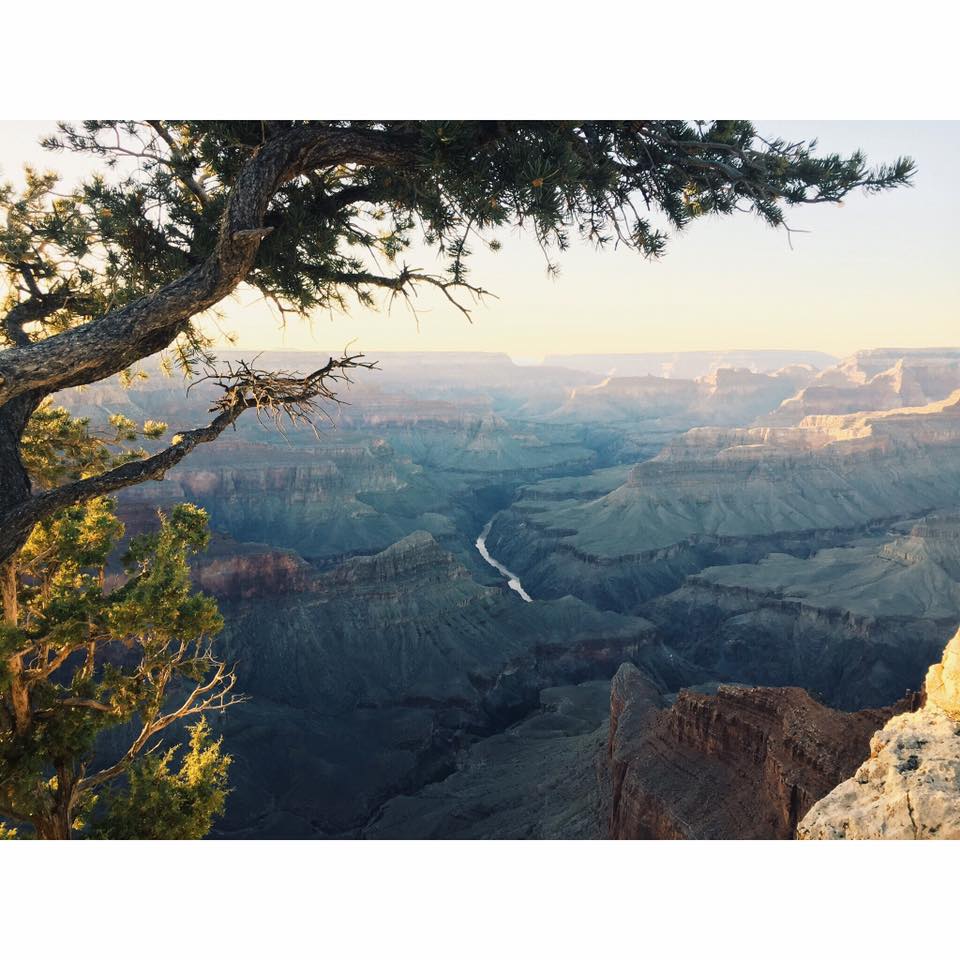
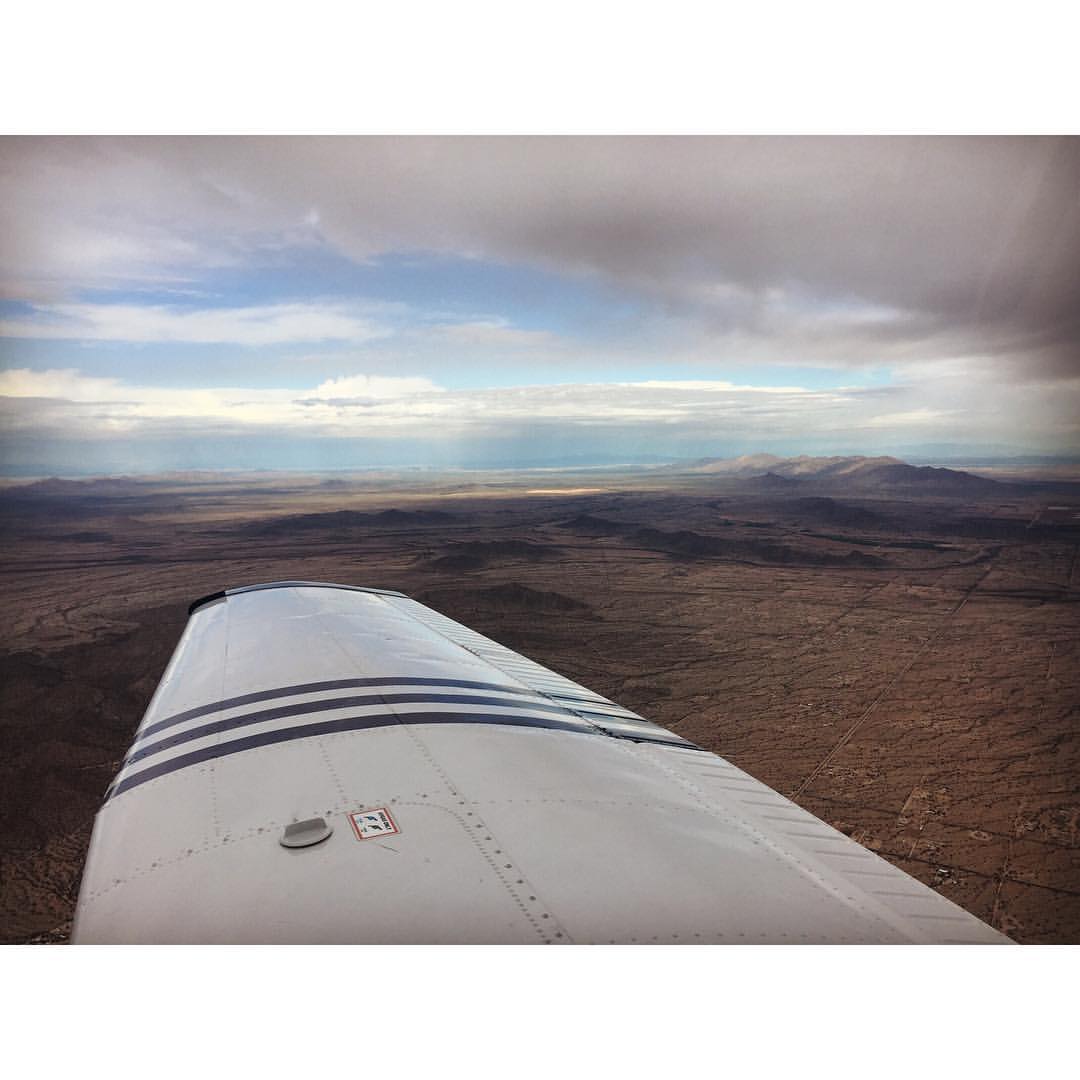
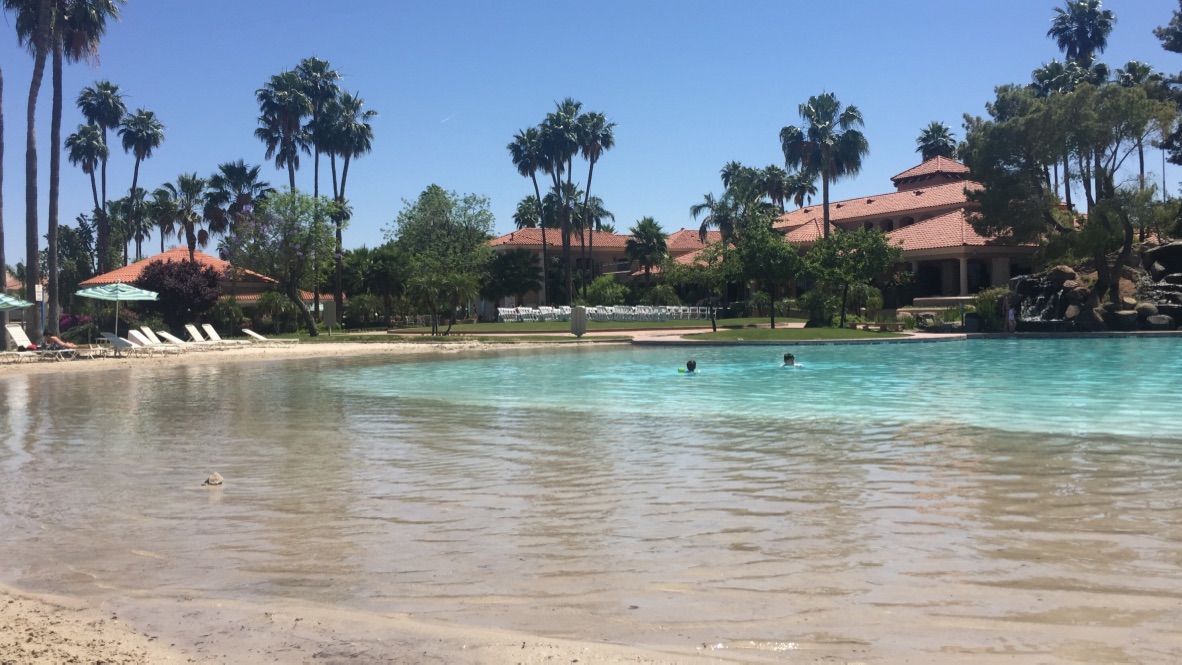
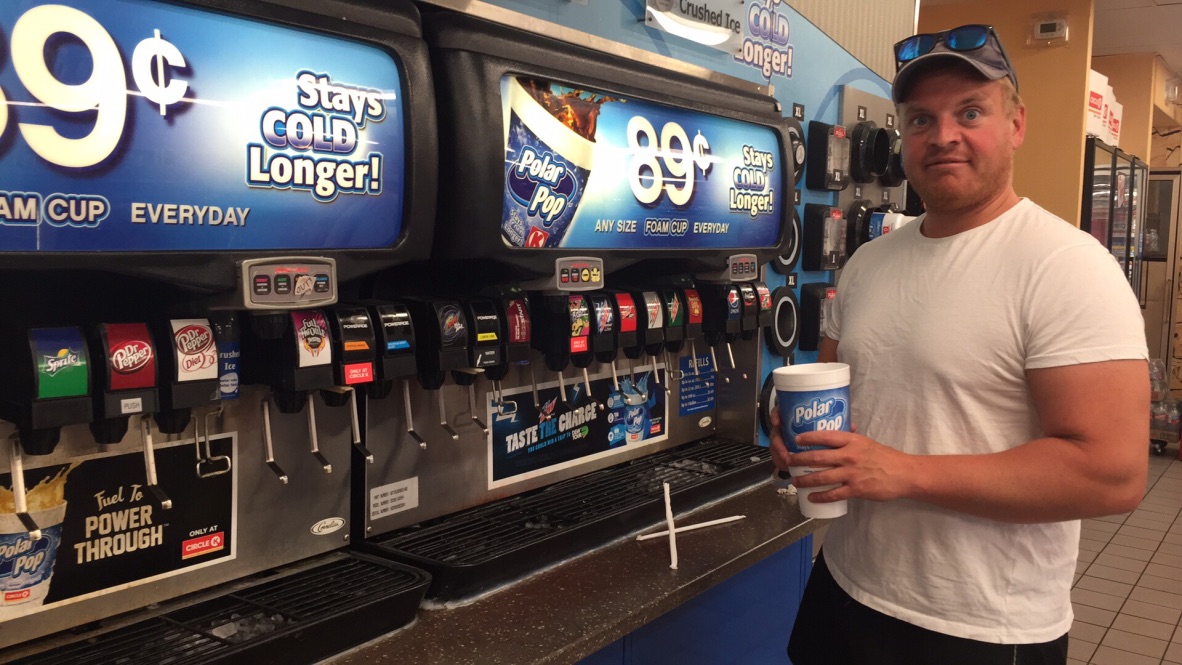
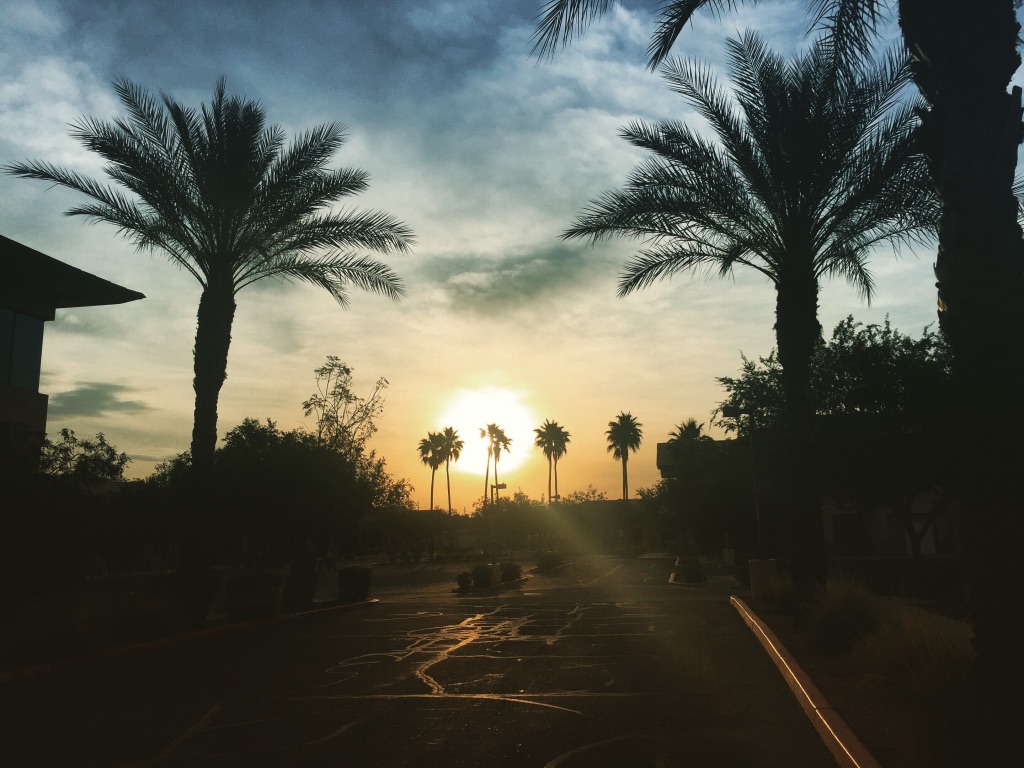
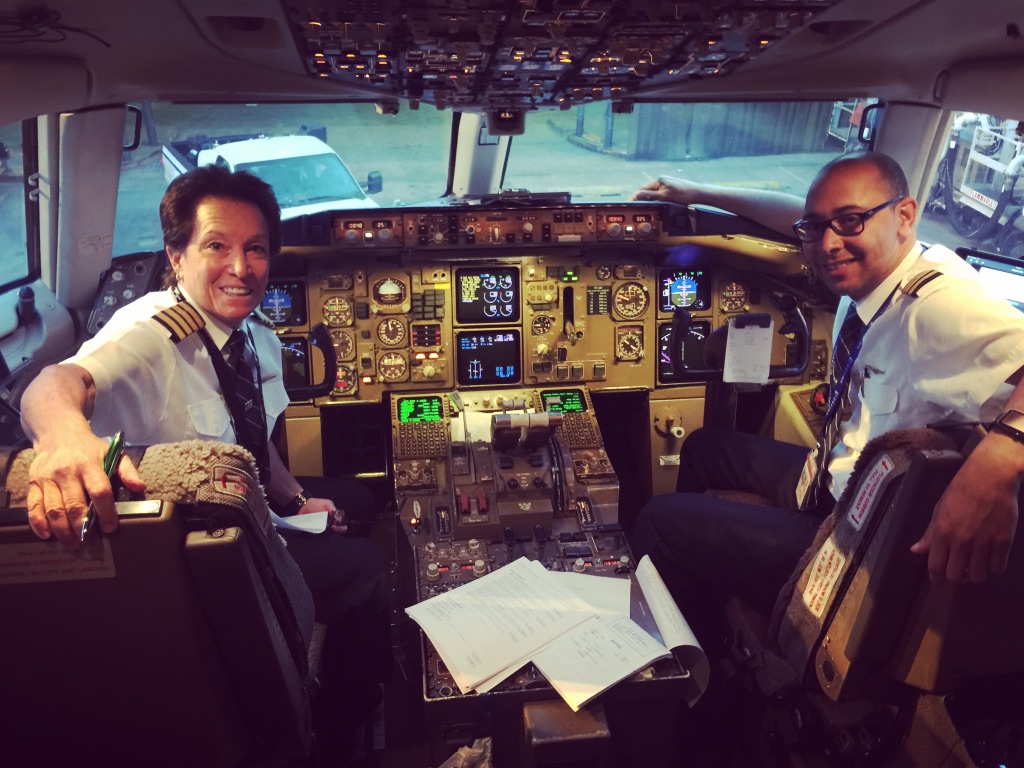
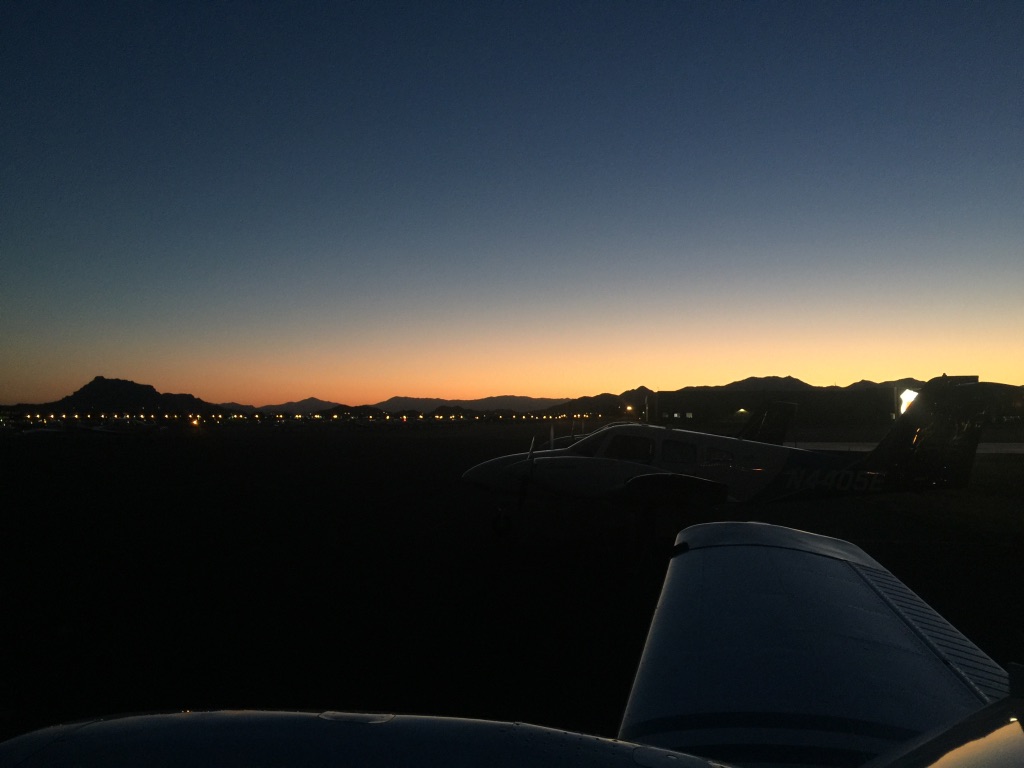
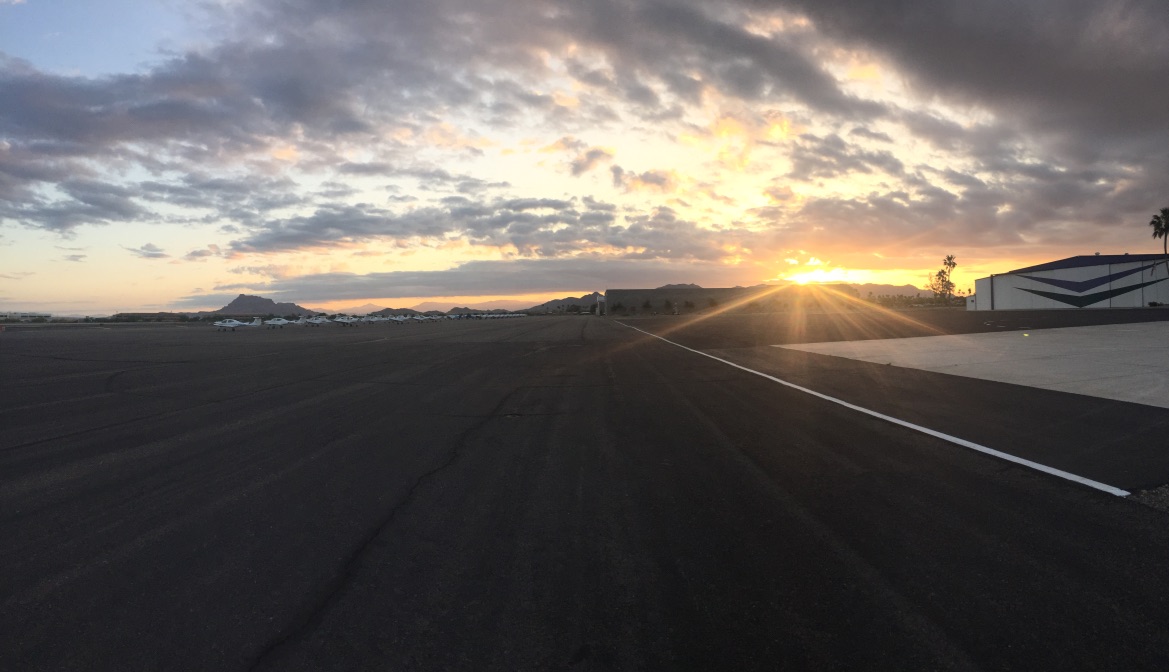
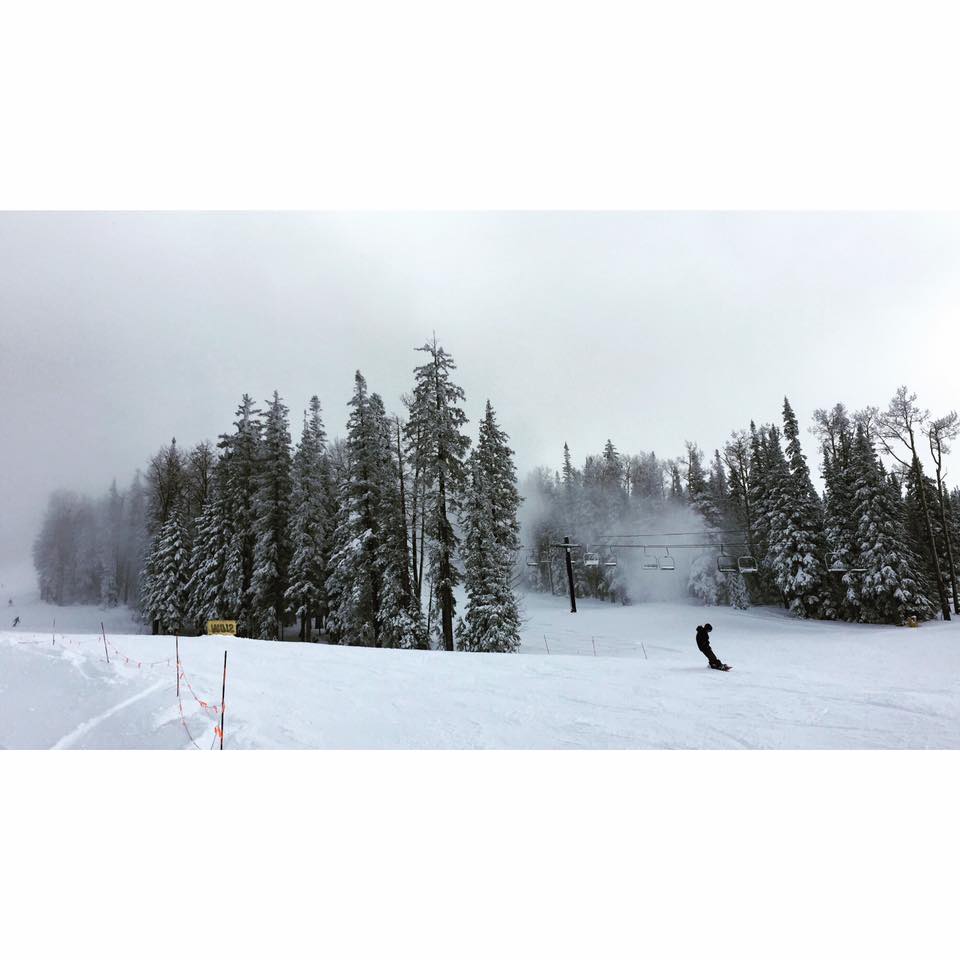
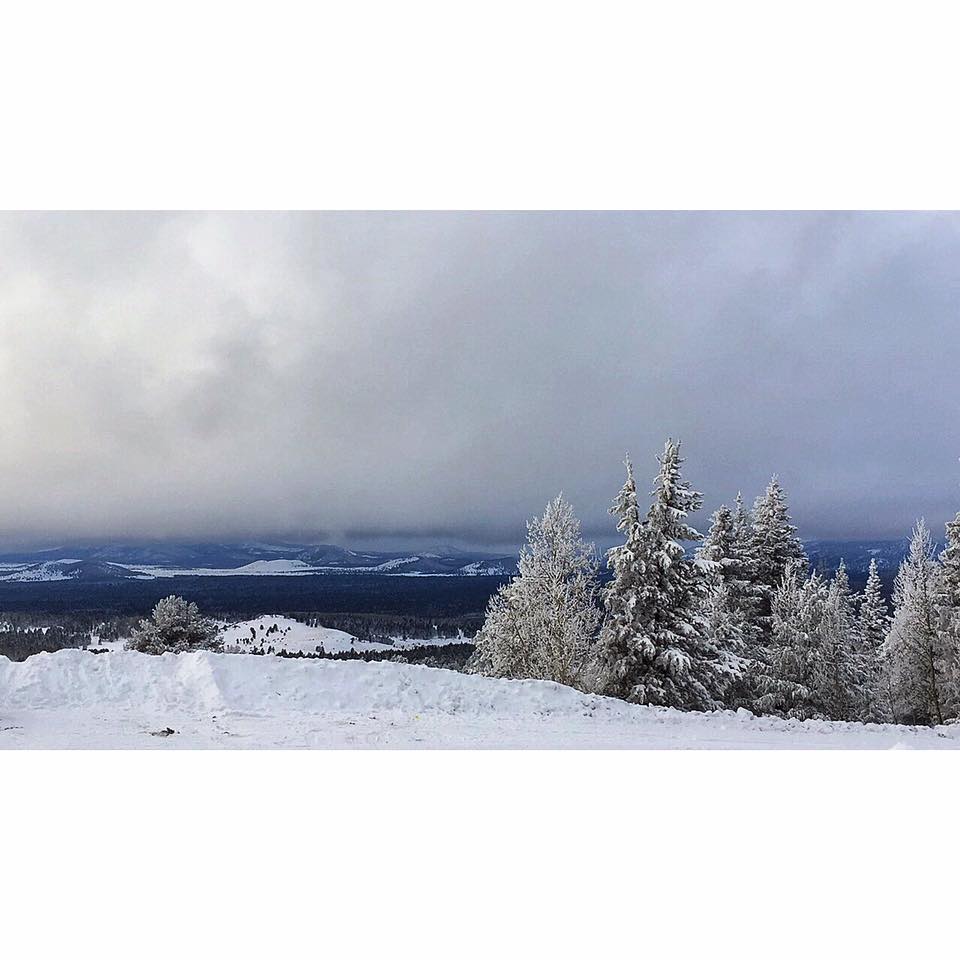
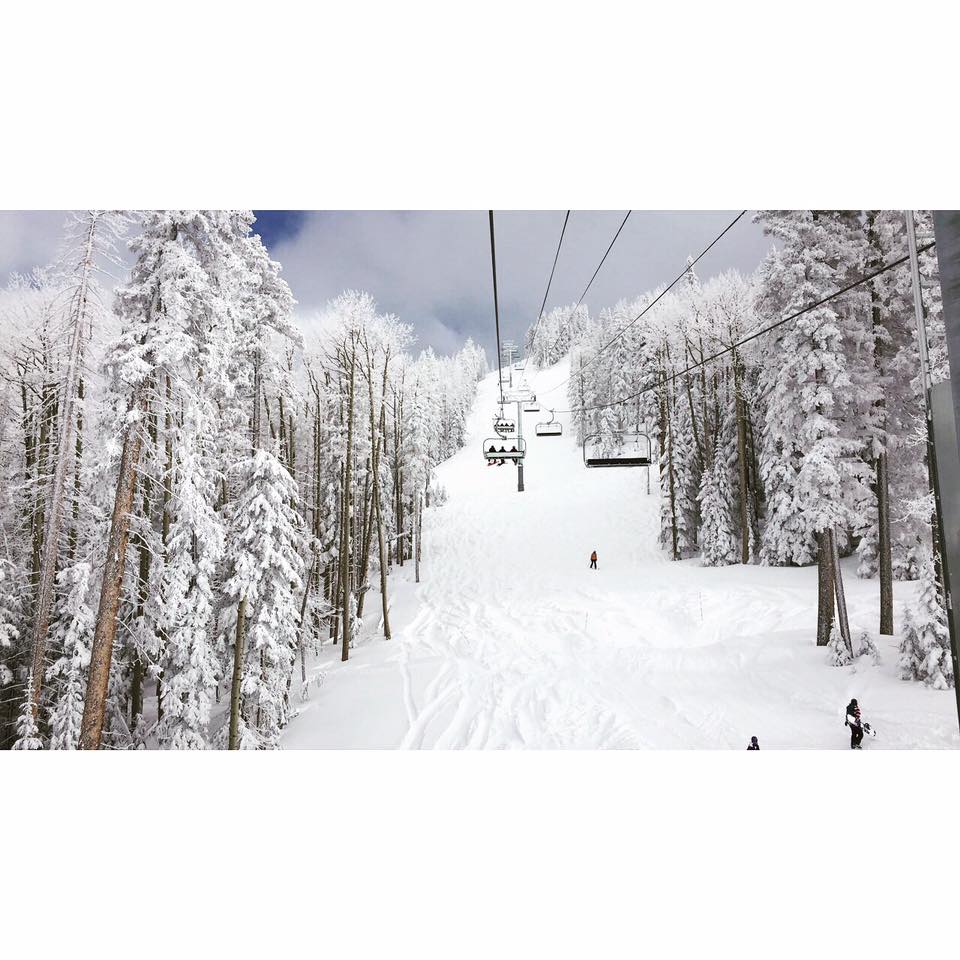
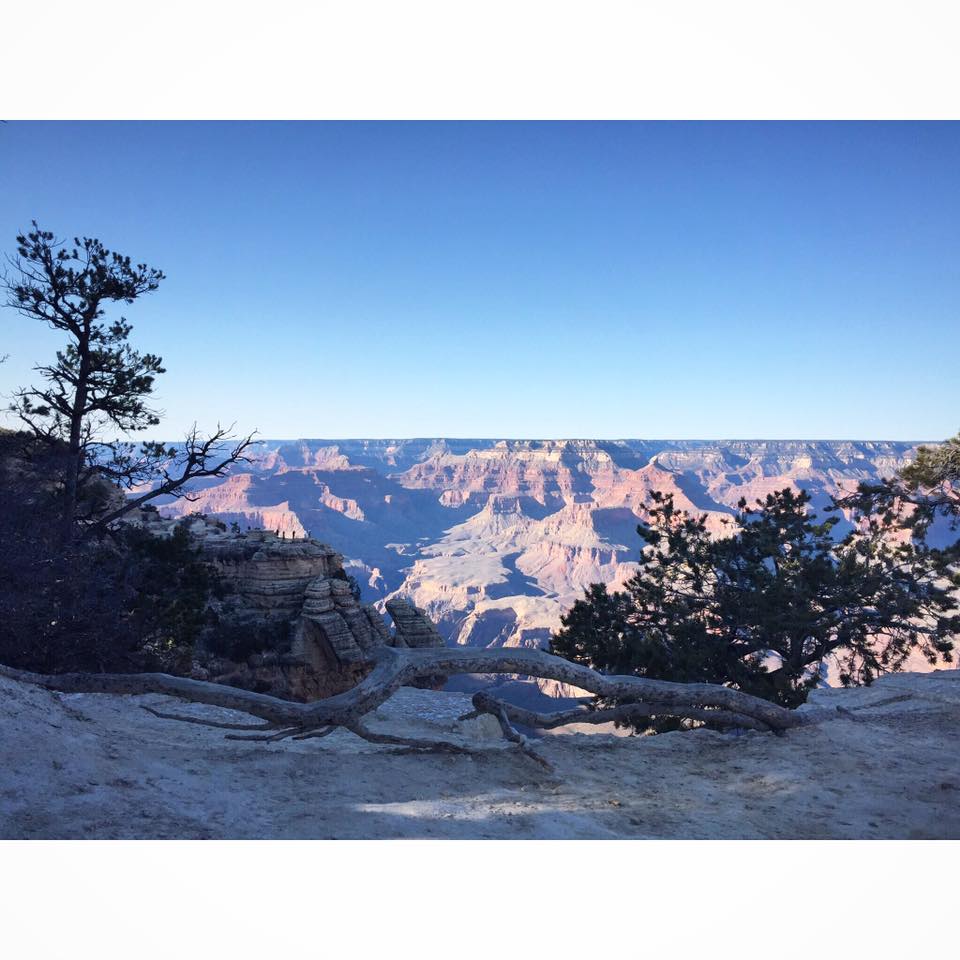
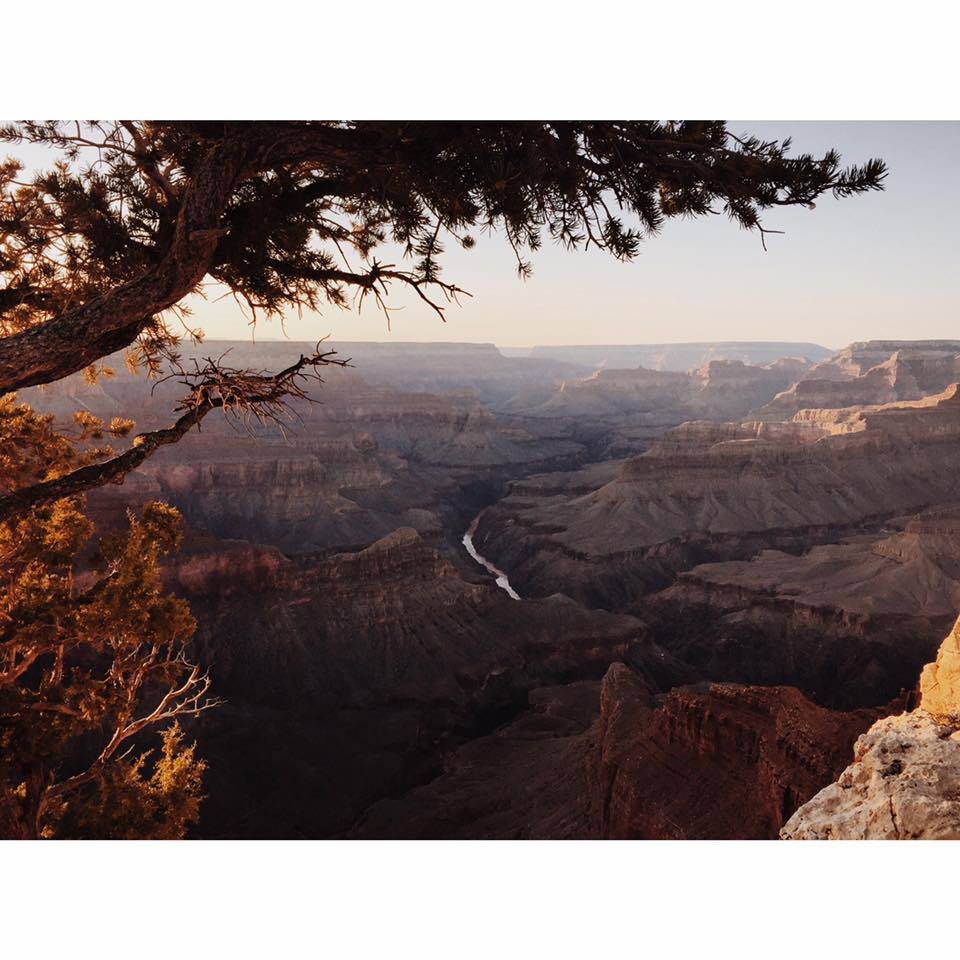
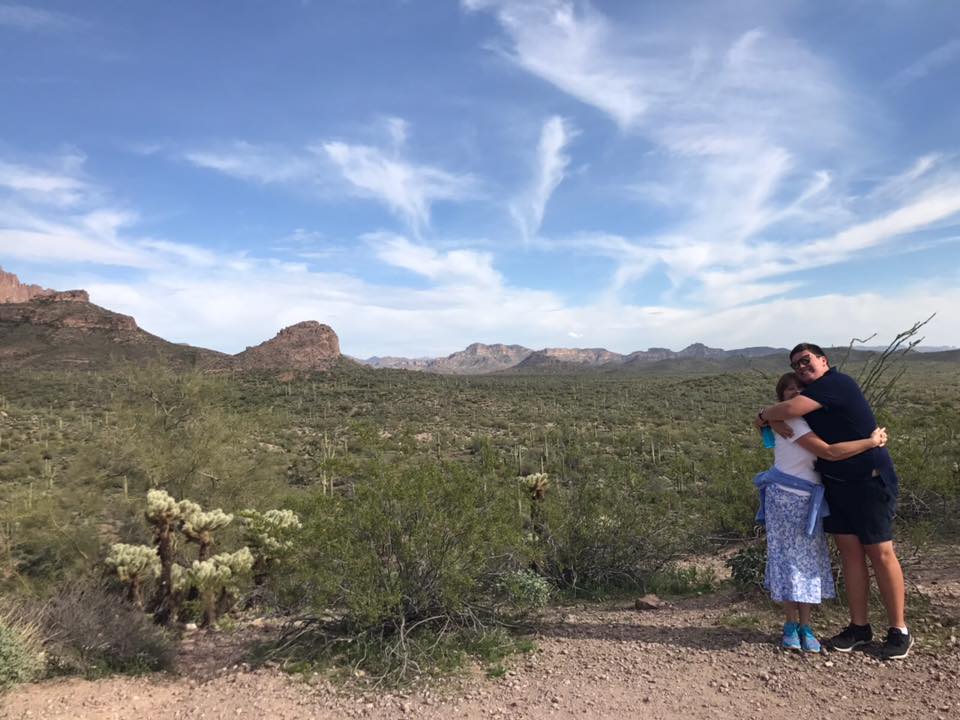
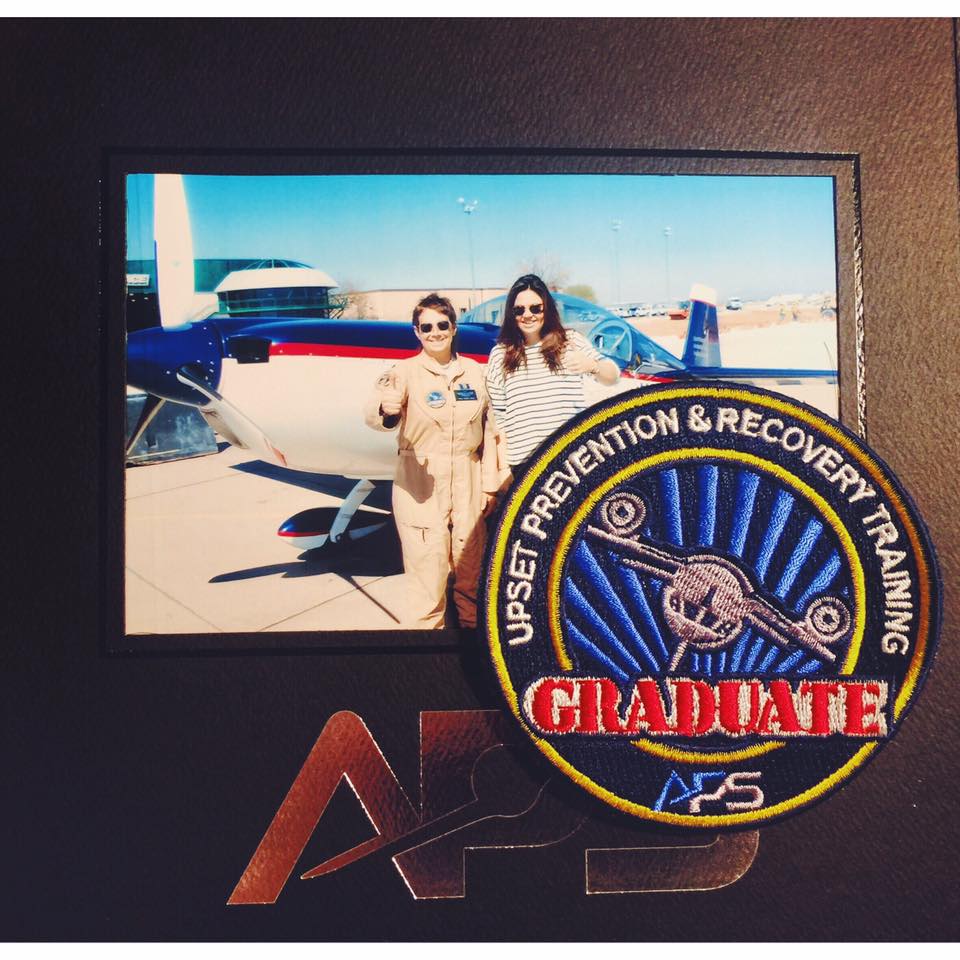

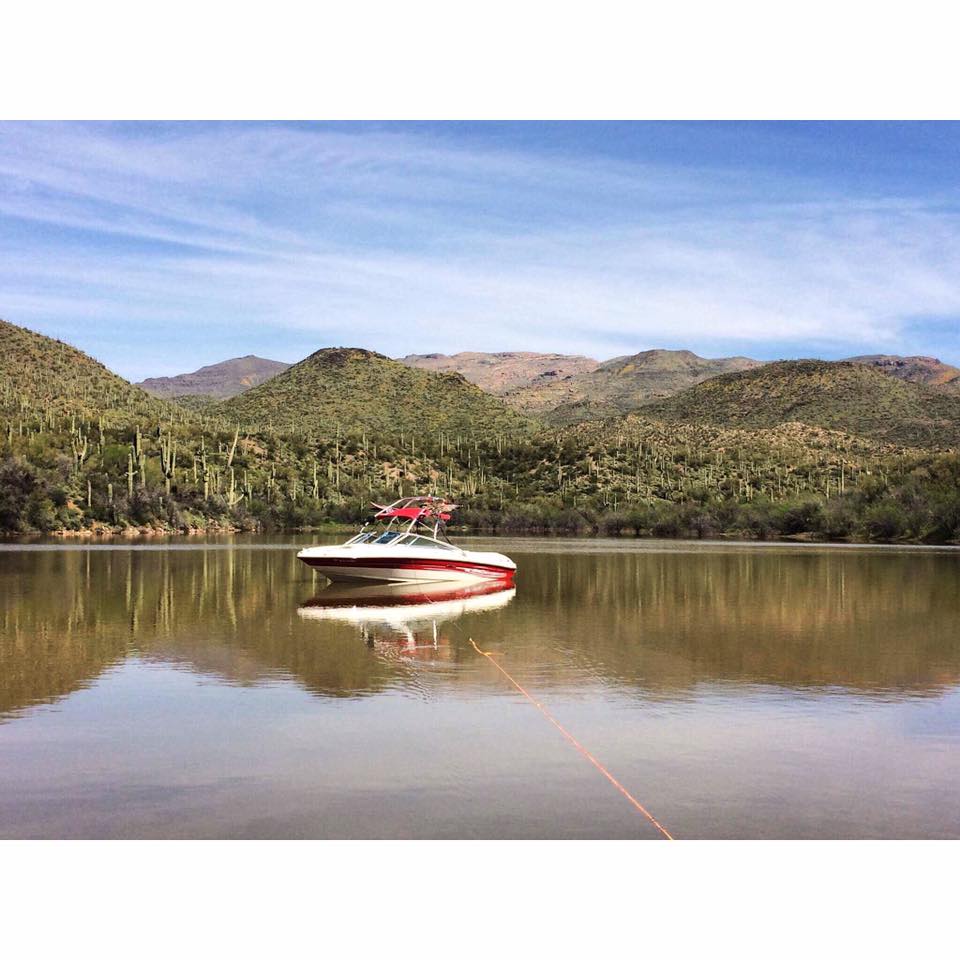
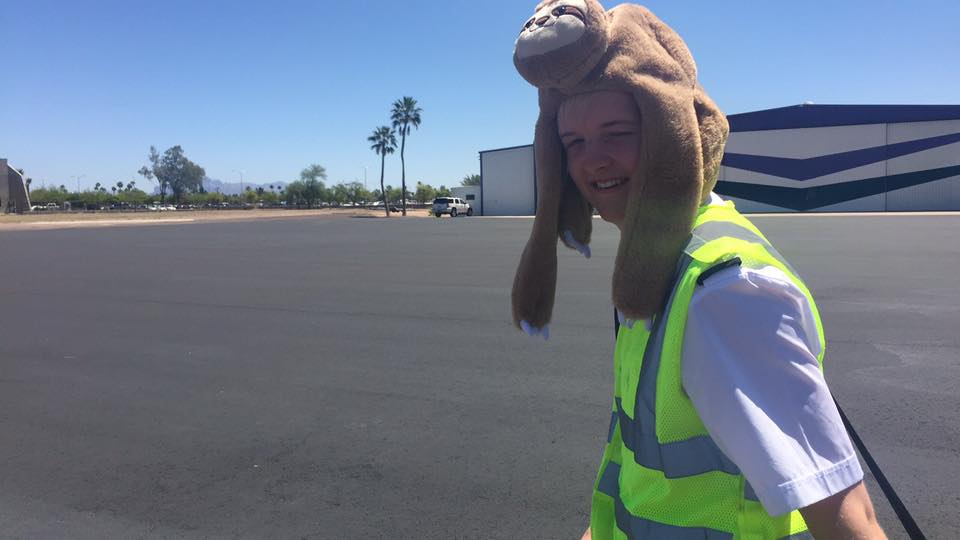
The next day depending on when you arrive, you'll proabaly be timetabled in school. Mostly admin stuff for the first week and then onto some MORE ground school (no tests though). A lovely combination with jet lag. In one of these lessons you'll also get to pick your flight partner. Mine was the legendary Blair. All I can say, is make sure you pick someone who you're going to have fun with. I laughed for days, even when we both wanted to cry.
We were assigned our instructors in week 3. All of them are excellent, but like anything, people learn in different ways. So if you find you're not matched with an instructor and you feel like its hindering your progress, have a word with the instructor, discuss maybe if there is another way they could explain it to you. If that doesn't work often an instructor change will do the trick. Then the real fun begins.
Learning to Fly
So, you've been dreaming of being a pilot for as long as you remember. It's what you were meant to be. Then you're thrust into the exponential learning curve of learning to fly.
Hear are a few honest truths I learnt on the way.
Know your checklists - you cant learn a check list by just reading it. Either go and sit in an aircraft and practice for half and hour, of use your paper cockpit. This is not somehting to be blase about. The better you know your checklists, the more spare capacity you have to actually learn how to fly.
Flying is not natural - it goes against all of your natural instincts. Don't be suprised if it takes you a while to overcome these. For example, landing. You know in your head what you have to do, but your survival instinct is all the time telling you not to hurtle towards the ground at high speed.
Don't judge your rate of learning by others - there will always be that loud mouth, who will blabber on about how easy they're finding it, they're not stressed and talking about stuff you haven't even heard of. Don't listen. Usually its the loud ones that are compensating for something (they're not actually very good at flying). If they don't seem as stressed, maybe they have different standards they set themselves? You'll all be training at your own pace, yes to a timetable of some sort, but it's YOU that is learning, no one else, so what does it matter how fast, far or good anyone else is going, so long as you are putting in 100%.
Always ask questions - there really are no stupid questions. You've never done this before, your instructor has limited insight as to what you know. Maybe you just forgot something, or have confused yourself ( I do this regularly) or he might think that someone has already told you. Whatever it is, just ASK.
Don't get stressed - flying should be fun. You're here to learn and this part of the course teaches you to be competent at VFR flying. You're tested a lot along the way. don't be disheartened if you need a few fore flights before a test. This flying thing is completely new to you. See it as a positive, more experience and stop being so hard on yourself. Be confident in your abilities.
You'll have flown about 15 hours before your first solo. Which you will never forget. I remember thinking .... how are they letting me take off, set free in the sky, on my own. You'll be saying the circuit pattern sequence aloud over an over again for the next 6 minutes until you taxi back to the apron and then you'll be like... oh I did it. Magic.
Next it's more solo flights then you move onto flight planning and navigation flights with your instructor, and then solo navigation flights. This is where the real adventure begins.
As far a navigation goes, all I would say is don't take short cuts. Don't use other peoples charts with routes already plotted, by all means ask friends for help, but you'll only do yourself an injustice by not planning your flights yourself.
Solo navs are the business. My first land-away is still one of the best days of my life. I remember flying down the valley to Ryan thinking ... ok so now I need to land at this unfamiliar airport, for the very first time, on my own. Once on the ground, I immediately sent a picture to my older brother who also trained out in Arizona, saying "Ok I've got to refuel the plane now... i've never even refuelled a car". To explain, I could fly before I could drive.
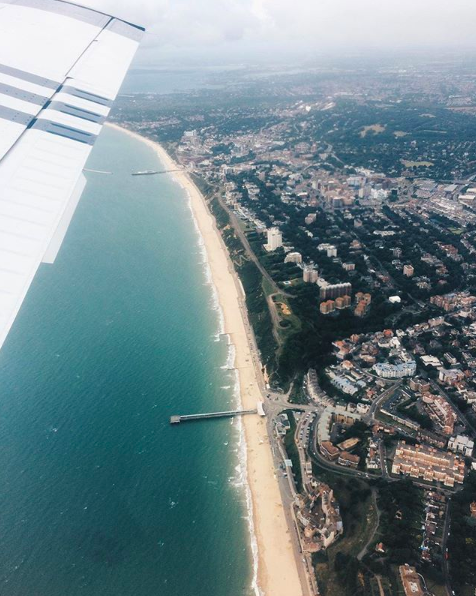
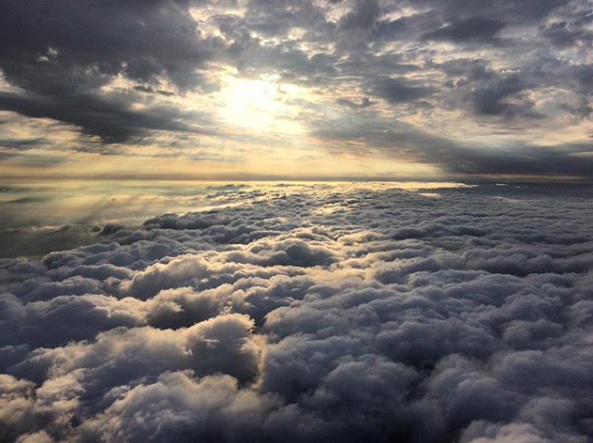
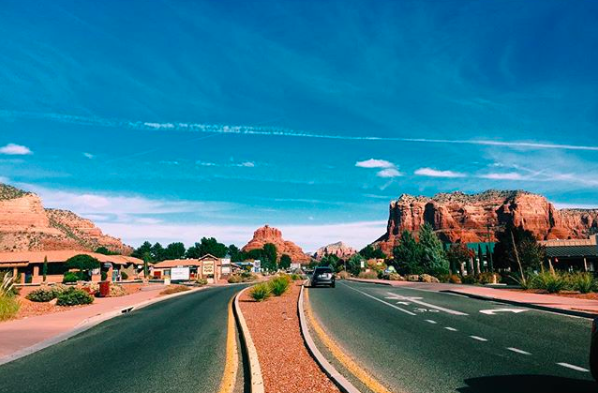
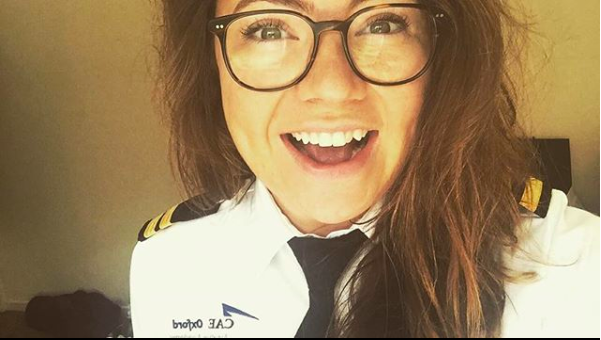
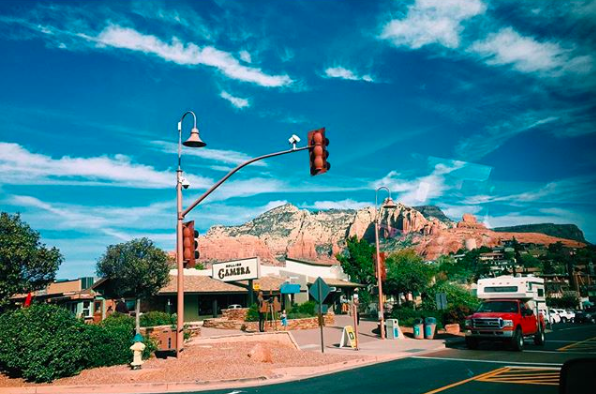
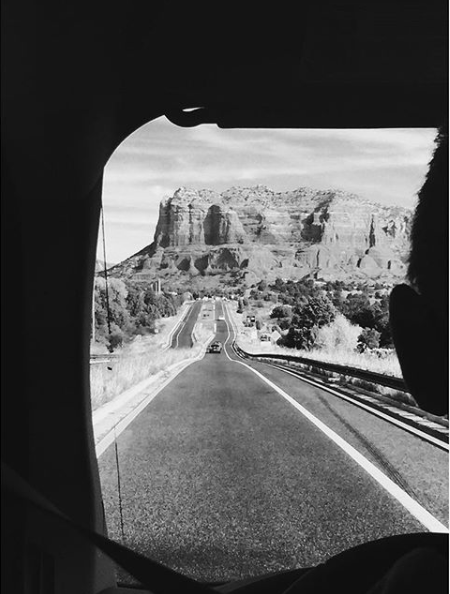
Everyone will say this to you, but treasure all of those solo nav flights. The scenery is simply spectacular and you'll likely never do similar flying again. I still have the images of overflying Picacho and Table Top mountain in my mind and I don't think i'll ever forget.
At some point towards the end of your single engine training, you will go and do upset recovery training at APS. This is advanced training designed for professional pilots to embed core skills and knowledge to recognise and solve all weather stall and airplane upset conditions. You’ll rock up to their building at Gateway airfield and be introduced to the most awesome bunch of pilots. I’m talking astronauts and F16 pilots, and they are going to take you up in a Extra 300L and teach you to recover from all sorts of situations, and do a little aerobatics too. AWESOME. Honestly the best flying experience I’ve had, but I am an adrenaline junky. I flew with Weeble, F16 pilot and NASA Space Shuttle Mission Controller. I mean…she is beyond cool, if you’re reading this it truly was an honour to be taught by you.
Then it's onto the twin. The Seminole. What a lovely little aeroplane. I was to say the least, slightly intimidated to now move onto what seemed a lot more to handle after the Archer. But at the end of the day, it's just another aeroplane, with an extra engine. Top tip for moving onto this stage - LEARN THE CHECKLISTS. So much so, you can recite them in your sleep. The Seminole stage takes between 2-4 weeks. Then its CPL time. Once you've passed that, which you will. It's home time, usually the next day. back to sunny old Oxford.
That flight home, seems oh so different as a passenger now that you hold a CPL. Another step closer to the dream.
The IR
Now its onto the IR stage. This is the part of the course which certifies you to fly single-engine or multi-engine aeroplanes under the Instrument Flight Rules (IFR) under Instrument Meteorological Conditions (IMC). Basically, learning to fly without being able to see out of the window. Its quite surreal returning to Oxford, now being the ones walking around with two stripes that you were secretly so jealous of all the way through ground school.
What you'll be doing:
20 hours in the Seneca
30 hours in the Flight Navigation Procedure Trainer (FNPT II - The Simulator)
Many people worry about this stage but like the rest, you learn as you go. The learning curve is steep as ever but you get briefs before each flight and so long as you're working at home chair-flying visual circuits, engine out procedures and the other memory emergency procedures, there is nothing to worry about. One big difference from the USA, if you have never flown in UK airspace before, its A LOT busier. You are now sharing airways with traffic e.g easyJet, Ryanair and BA. This means you have to learn the correct procedures and calls to use within controlled airspace. No more talking to your friends on 123.45 ... Take a look at CAP413 for more on this.
Just like the rest of the course, fail to prepare, prepare to fail.
The IR exam is a big one, one you definitely want to pass first time as some airlines will only accept you with a first time pass. DO NOT PANIC, if you fail one section, this is called a partial pass and you just redo that item another day. This is considered as a first series pass, which is considered as first time.
When you pass, you will feel fantastic. It finally feels almost like the end. During training, because you are assessed continually there is not often any feeling of relief when you pass a test (at least this was how it was for me). I have to say the moment it all finally felt like i'd finally achieved my goal, was when I got the call about getting the job with easy jet .
Well, actually what happened was quite funny. Our fantastic head of graduate services couldn't get hold of me and so posted a picture of an orange bottle of champagne on my facebook. My immediate thought was, is this a cruel joke! I was running around the house asking my flight partner Henri, "WHAT DOES THIS MEAN, HAVE I GOT THE JOB?!". I finally managed to call Mike and he broke the good news. Henri will vouch that I then started bouncing around the living room with the biggest smile on my face saying over and over again, "I'm a real pilot".
I would just like to finish this blog post by saying thank you to some of the fantastic people that helped me on my journey.
All of the ground school instructors at CAE who kept us going through those horrendous 6 months and answered all our questions.
Boris, Brian and Ryan who taught me to fly out in Arizona.
The legend Mr Tim Lewton who put up with Henri and I through the IR and got us those first time passes.
Mr Mike Griffith, for being part of the whole journey (a long one) and putting me forward for my interview.
My flight partners Blair and Henri, you have seen me at ungodly times of the morning and we are still friends and will be forever. Thank you for getting me through.
And of course, my family and friends. Without your support and understanding of why I became hermit for 2 years, I would not be where I am today.


